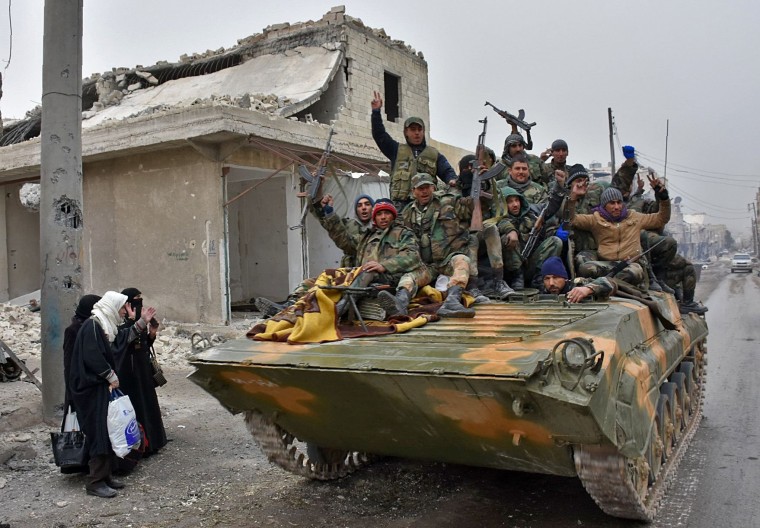Senior national security officials in the Obama administration had a caveat when considering how to handle Syria: Don't engage militarily unless you know what that will lead to.
Jeremy Bash, a former chief of staff in the Department of Defense and CIA, said answering that was fraught with unknowns — and thus put the kibosh on more forceful options.
But the Trump administration's decision to strike the Syrian government of President Bashar Assad on Thursday for the first time during this more than six-year civil war is a fresh approach by a new White House that continues to act unconventionally, says Bash, now an NBC News national security analyst.
Here are Bash's takeaways for the unexpected military action that could have far-reaching international repercussions.
An airstrike puts other countries on notice.
Bash said the strike "sent an important message to Assad and the people of Syria that America is not going to tolerate these kinds of atrocities," following the deaths of more than 100 people in a chemical weapons attack.
In addition, it sends a "critical message" to other adversarial countries, such as North Korea and Iran, that the U.S. is willing to commit military resources to "stop and deter aggression," Bash added.
The risks with such an operation were small to begin with.
The 59 Tomahawk cruise missiles used to crush a Syrian airbase were shot from a distance by the USS Ross and USS Porter, both destroyers, located in the eastern Mediterranean.
American or ally troops weren't in harm's way, and so, the strike came with "minimal risk," Bash said.
Related: What Are Trump's Next Options on Syria?
The mission itself was limited and constrained. But that also means Syria's weaponry wouldn't have been significantly degraded, he added.
Two senior U.S. military officials told NBC News that 20 Syrian aircraft were destroyed in the operation — although the nation's air force would still have hundreds of planes at its disposal.
The U.S.-Russian relationship will grow tenser.
Russia, a staunch Assad ally, called the airstrikes an "act of aggression" and said it is suspending an agreement that prevents direct conflict between U.S. and Russian forces in the region.
While members of the Trump campaign have been accused of being too cozy with Russian officials, Bash said the military strike has the benefit of Washington appearing to push back at Moscow.
Israel and Iran remain wildcards in the region.
Assad condemned the U.S. airstrike as a "reckless and irresponsible act," but it's unclear how his government will choose to respond. Bash said Assad, who has held onto power since 2000, could choose to retaliate by striking U.S. ally Israel, which "will not taking it lying down — Israel with its highly capable air force could hit Damascus with significant force."
In addition, Syria's regional partner, Iran, could exert its proxies in Iraq to attack U.S. forces who are training the Iraqis, Bash said.
"One reason why Iran has held off on those attacks is because we’ve come to a common understanding that the U.S. is not going to engage in military force to topple the Assad regime," Bash said. "With yesterday’s actions, that premise could be questioned in Tehran."
Assad might be more willing to seek diplomacy.
Depending on how much damage the airstrike inflicted, Syria's president might decide to accelerate the peacemaking process if his own military options are limited.
"If he thinks he can’t wage war on his own people and he will face the retaliation of the U.S. military, it could bring him to the table faster," Bash said.
Bash said diplomatic channels are imperative to ending the strife in Syria, where the people remain trapped in a widening humanitarian crisis.
"This missile salvo must be followed by a diplomatic salvo," he added. "It's a delicate balance that Trump now faces for what to do next."

